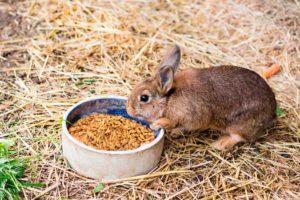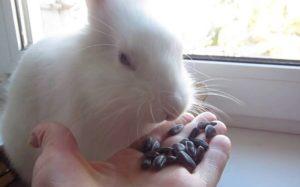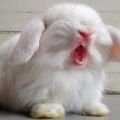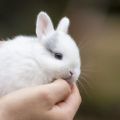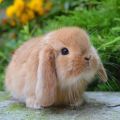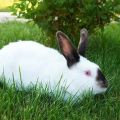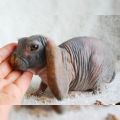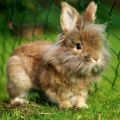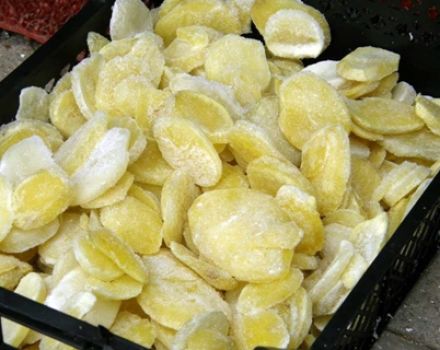Why do rabbits sneeze and what to do, methods of treatment and methods of prevention
When a rabbit sneezes often, this is how an unconditioned reflex is manifested to the effect of an irritating factor. Many owners immediately suspect a cold or an infectious respiratory disease, but sneezing is also the result of a reaction to allergens, stress, unsuitable food, dry air, dirt and dust. They say about a cold or infectious origin of sneezing when the animal's health worsens, mucous discharge comes from the nose.
Why does the rabbit sneeze many times in a row and what should be done?
To properly treat a rabbit, you need to find out why it sneezes. To do this, it is necessary to analyze the symptoms, assess the well-being of the animal and the environment. A sick rabbit should be immediately removed from its relatives, and a veterinarian should be consulted. If the disease turns out to be infectious, then an uninsulated rabbit can infect neighbors. A sick pet is fed qualitatively, given a large percentage of vitamin fresh greens.
Stress
It is not uncommon for rabbits to sneeze due to a stressful situation. Moreover, in this case, the symptomatology is supplemented by nasal discharge and lacrimation. The danger is that the pet can smear the discharge on the face, and they will become a substrate for the reproduction of pathogens, provoke an infectious disease.
You just need to observe the animal, find out what exactly it is sneezing about. This can be, for example, moving to another cage or neighborhood with aggressive animals. It is enough to eliminate the stress factor, and if this is impossible, then wait for the pet to get used to the new conditions. And then the animal's health will gradually return to normal.
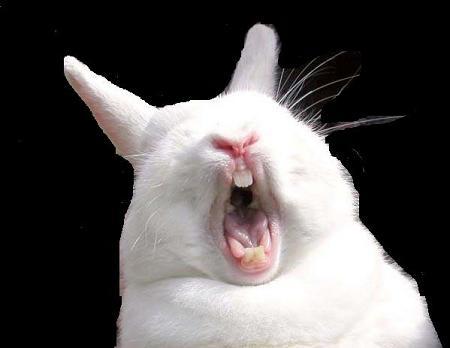
Poor conditions of detention
Rabbits are quite sensitive to environmental conditions, constantly sneezing with improper care and maintenance. Sneezing factors:
- increase in air humidity;
- dustiness of the rabbitry;
- dirt, impurities, rotting food particles in the cell;
- irritating odors;
- irregular changes in water, food and bedding;
- too intense illumination of the rabbitry.
In order for the rabbit to stop sneezing, the provoking factor must be eliminated. Improper care can lead to the development of serious infectious pathologies in rabbits, therefore, the cages should be cleaned regularly, and the conditions of detention should be maintained normal.
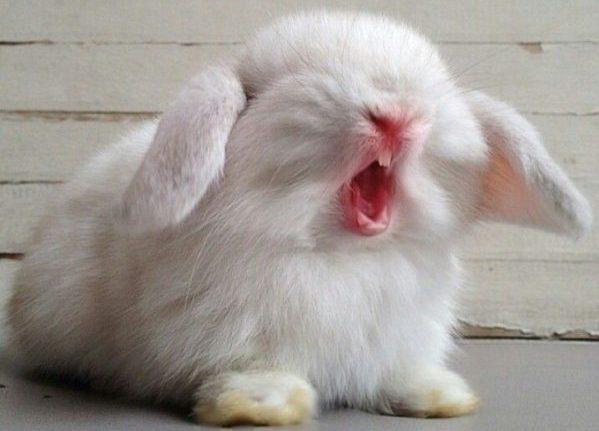
Dry air
Rabbits sneeze not only because of too humid, but also because of dry air, which irritates the mucous membranes of the nasal cavity. An inflammatory process begins in the mucous tissues, accompanied by sneezing, but without snot.
Rabbits usually sneeze during the heat of summer or during the winter months, when a heating device is in operation in the rabbitry. It is necessary to increase the humidity of the air by placing bowls of water, hanging wet rags, and regularly ventilating the room.
Wrong diet
Rabbits rarely sneeze from unsuitable food, but if such a problem arises, then a runny nose and symptoms of poisoning are observed. The food is not toxic to the pet, the body just reacts to it that way. To fix the problem, you just need to return the previous diet.

Allergy
An allergen that causes a pet to sneeze can be anything:
- litter;
- feed;
- means for cleaning and disinfecting the cage;
- aerosols to eliminate unpleasant odors in the rabbitry.
It is necessary to find out what negatively affects the animal by experiment. For this, new feed is gradually added, partially replacing the used one. Monitor whether the rabbit's allergic reaction persists or disappears. A similar manipulation is done with other potential allergens.
Medicines against allergies are prescribed by a veterinarian. And the owner must carry out a thorough cleaning in the rabbitry, remove all sources of unpleasant odor, and put aerosol and cleaning agents further from the cages.
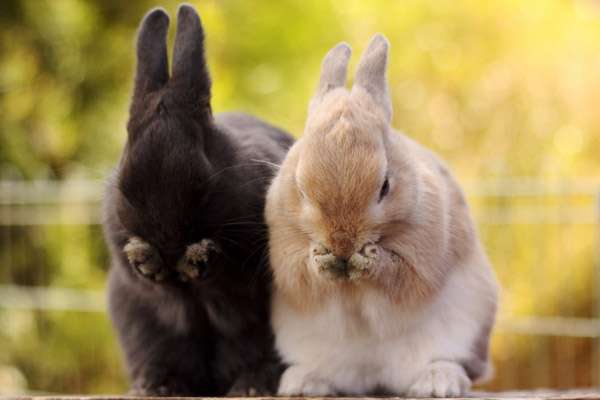
Nose injury
When the rabbit breathes heavily, sneezes, snorts, there is a possibility that he injured his nose, or a foreign object is stuck in his nasal cavity. In this case, you must immediately contact the veterinary clinic. It is unacceptable to treat on your own, this can lead to a deterioration in the condition of the animal.
Infectious diseases
When a rabbit sneezes due to an infectious disease, the owner observes many specific symptoms:
- loss of appetite;
- lethargy, weakness;
- tarnishing and tousled coat;
- temperature increase;
- profuse lacrimation;
- runny nose, discharge of clear or purulent mucus;
- heavy and hoarse breathing, cough.

Viral and bacterial diseases are treated with medication prescribed by a veterinarian.
Self-selection of treatment is unacceptable. The wrong medicines can be useless and even harmful to the animal.
When a pet sneezes from an infectious rhinitis, a broad spectrum antibiotic is prescribed that will work against any possible pathogen. Common medicines:
- Baytril (0.3 ml per 1 kg of body weight);
- "Marbocil" 2% (0.1 ml per 1 kg);
- "Veracin" (0.1 ml per 1 kg);
- "Chloramphenicol" (2-5 mg per 1 kg).
The duration of the course is determined by the veterinarian. The drugs are administered intramuscularly, sometimes they are additionally instilled into the nasal passages.
To make the rabbit stop sneezing and coughing as soon as possible, it is recommended to do inhalation using essential oils of fennel, eucalyptus, sage, mint. To do this, pour 2 liters of hot water into the container, drip 5-6 drops of oil. The liquid is taken to the rabbitry when the intense ethereal odor dissipates. The container is placed next to the animal. She and the rabbit are covered with a large towel so that the healing vapors do not dissipate, leaving a gap for air to penetrate.
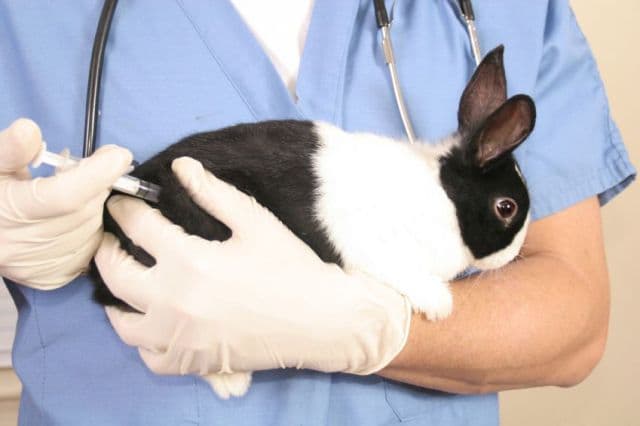
Inhalation is carried out no longer than a week, otherwise the mucous tissues of the rabbit respiratory tract will dry out. The procedure is carried out 3 times a day. In the first days of treatment, the pet usually sneezes more often, his snot flows even more abundantly. There is no need to worry: by the end of the week, the rhinitis should disappear.
How to prevent a problem from arising
To prevent diseases that cause rabbits to sneeze, you must follow these rules:
- promptly cleanse the cage from uneaten food, dust and dirt;
- change the water in the drinker daily;
- regularly change the litter in the cages;
- avoid drafts and sudden temperature fluctuations in the rabbitry;
- monitor the degree of humidity;
- buy quality food that does not contain dubious ingredients and impurities;
- introduce new food gradually, observing the reaction of animals;
- exclude all possible allergens;
- vaccinate pets every six months;
- periodically give animals herbal decoctions to strengthen the immune system.
The decorative rabbit sneezes for the same reasons as its meat cousins. Therefore, treatment measures should be similar.
If your rabbit sneezes frequently, this should not be ignored. Sneezing is a sign of both frivolous and dangerous changes in the body. Therefore, a pet that sneezes should be immediately shown to the veterinarian. The correct treatment prescribed by a specialist will avoid complications.
